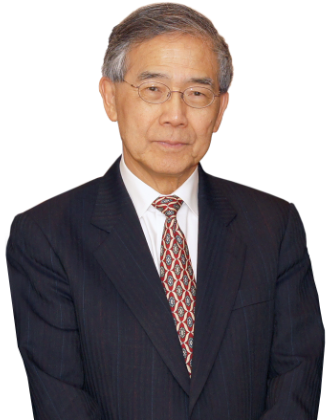Mechanisms of PhytoChi’s effect on harmonizing the body

Mechanisms of PhytoChi’s effect on harmonizing the body
First of all, it has to be noted that when using combinations of plant extracts based on the principles of traditional Chinese natural healing, classical pharmacological principles of Western medicine do not apply. This concerns in particular the receptor theory, which operates with the lock/key model, and the principle of dose-dependant action..
The PhytoChi formula is optimized to maintain homeostasis in the body, which is the main prerequisite for keeping the body in equilibrium, in the sense of balancing the Chinese principles of yin and yang and thus maintaining good health.
The word homeostasis comes from the Greek “homoios” meaning unchanging or constant, and “stasis”, meaning state.
Processes in the body always aim for achieving and maintaining an “optimal environment” – this situation is called “stability of the internal environment” (factors such as body temperature, oxygen and carbon dioxide concentration in the blood, blood density, blood pH, concentration of various minerals and other substances).
So this is about maintaining health, which is fundamentally different from treatment that restores, adjusts and modifies important biochemical indicators in order to get them back to a “normal range”, that is, restores health by significantly intervening in the deviated biochemical indicators of health, so-called biomarkers.
Health can be best defined as the ability to functionally adapt to changing life conditions or changes in the environment. This adaptation is achieved through maintaining the above-mentioned factors and biomarkers within allowable tolerance limits without fundamental deviations. The picture below shows a graphic representation of these processes:
Dietary supplements, including PhytoChi, are designed to maintain health, and the principle of homeostasis maintenance was recognized by the Council of Europe in Strasbourg as the rationale for the action of such preparations. These preparations do not heal but help support, maintain and optimize the “stability of the internal environment” in the body, which then remains within the limits of sustainable health.
As the body ages, it is almost constantly exposed to “allostatic load” due to various stressful situations, such as psychosocial changes, negative emotions and attacks by different pathogens and parasites, as well as physical strain and changes in the weather and environment. Particularly when the body is more worn out, this load aims to “throw it off” or “get under its skin” through pathogenic agents, and the body is headed toward illness. Due to this dysregulation, physiological parameters deviate from the homeostasis tolerance limits mentioned above, and homeostasis tends to become temporarily unsustainable when the first symptoms of illness (prodromal symptoms) manifest themselves and head to a more permanent abnormal/pathological situation.
A comprehensive set of selected plant extracts works against deviations from the homeostatic equilibrium. Many of these extracts work as adaptogens, i.e., substances which assist in coping with various changes within the body caused by external changes in the environment. This means they have: 1) non-specific effects, such as enhancing the overall physical resistance to stress, 2) a normalizing effect on homeostasis regardless of the nature of the agents trying to disturb it, and 3) they are safe to use, because they do not significantly influence common body functions. These substances are supplied through standardized extracts from ginseng, eleuthero and schisandra.
Others act as immunomodulators that harmonize, i.e., optimize immune reactions to achieve health – they reinforce insufficient immunity and reduce excessive immunity in the form of allergic reactions. In addition, larger amounts of so-called immunocomplexes arise from the blocking of microbes and their toxins by non-specific immunity, and these need to be gradually removed from the body. Astragalus, goji berries, lingzhi mushrooms, Job’s Tears and juice from the Aloe Vera gel fall into this category.
Many potentially harmful free radicals arise during metabolism. These can damage not only cell structures but also DNA, the carrier of genetic information, causing various errors in its transcription which then give rise to mutated cells. These cells pose the risk of forming initial neoplasms or pre-cancer conditions, which the immune system first needs to recognize as mutated and thus extraneous, and then to eliminate them with so-called killer cells. Moreover, mutated cells disguise themselves, and if impaired immunity does not eliminate them, natural substances, particularly polyhydroxy phenols and some natural pigments, need to be applied on the walls of the modified cells, which initiates apoptosis or natural cell death, finally removing the cells from the body. These substances are largely found in knotweed and turmeric, while flavonoid antioxidants protecting the DNA are contained in liquorice and Cherokee Rose hips.
During the above-mentioned permanent allostatic load, the body also reacts by disturbing other regulatory systems, such as cortisol, activating inflammatory cytokines and prostaglandins, catecholamines and hormones, which need to be brought back to normal production and reduced by switching off the signals of disturbance and inducing a subjective feeling of well-being – this is achieved by the substances found in passion flowers and tangerine pericarp.
Long-term psychological stress may cause a disturbance of the neuroendocrine-immunological axis “brain-intestine”, which usually leads to poor digestion of the upper or lower dyspeptic syndrome type. With this syndrome, dysmicrobia (prevalence of problematic microbes over symbiotic ones) forms in the digestive tract which is additionally, in a vicious circle, supported by the increased production of the enzyme indoleamine 2,3-dioxygenase, eliminating serotonin and its source tryptophan, which causes lack of serotonin in the brain and thus a tendency to depressive moods. In the combination of extracts included in PhytoChi, cinnamon tree and turmeric improve digestion, and schisandra protects the liver against toxic damage.
Overall, the combination contains numerous natural substances which prevent changes in genetic transcription by initiating natural defensive enzymes, such as glutathione peroxidase, superoxide dismutase, and contribute to the proper functioning of the “mismatch repair-protein” which repairs damaged DNA.
In conclusion, it has to be noted that all the mentioned balance systems for maintaining health are dynamic, and every human contains much more bacterial DNA than their own DNA. The maintenance of proper microbe diversity is the prerequisite of health, but only on an individual level, because all humans have their own “microbiome” (a set of symbiotic bacteria and commensal yeast cells and moulds) determined by their genetic set and by what they have encountered throughout their life. Maintaining dynamic equilibrium on various levels is therefore important for a healthy and long active life.
Member of the Central Advisory Committee for Medicinal Plants of the Ministry of Health of the Czech Republic and member of the Board of Directors of the European Botanical Forum Brussels.













 info@phyto.cz
info@phyto.cz
